Picture the scene: it’s Ancient Greece, in the fourth century BCE. Young Hipparchia has one aim in mind; to marry into a prominent family and become even richer. Little does she know, that a philosopher named Crates is about to change her entire world view, and turn her life upside down. Based on the real-life of Hipparchia of Maroneia, The Philosopher, the Dog and the Wedding from Barbara Stok and SelfMadeHero is a graphic interpretation about the life of one of the first women to ever become a philosopher.
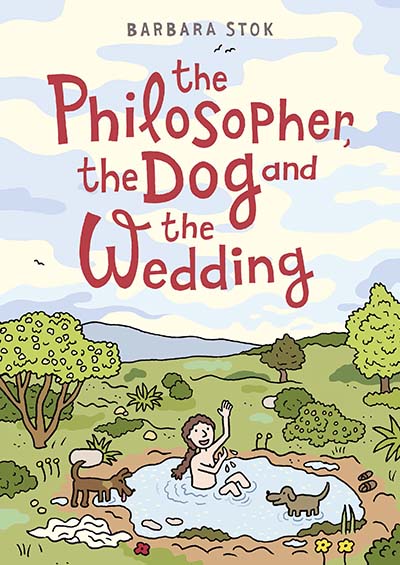
Hipparchia has a life that many dream of; few responsibilities, no money worries, a huge roof over her head, and status. Yet, she often finds herself frustrated; why isn’t she allowed to read what she likes, or discuss philosophy? It is immediately clear from the get-go that Hipparchia has superior intelligence to the males around her. Whilst the men of the house lock themselves away discussing ‘philosophical questions’ like “can partying make you as happy as doing a good business deal” before partying all through the night, Hipparchia is up early the next morning, pondering Socrates’ musings on what makes a good life. However, her thoughts are soon interrupted by the news that her father has found her a suitable match, and she must travel to Athens. Although Hipparchia is initially delighted by having found a suitor, despite a few red flags like having her books taken away before she travels, she soon begins to have doubts when she meets unconventional philosopher Crates.
Initially mistaking him for a tramp, Crates is everything that a traditional philosopher should not be; cheeky, bedraggled, and challenging, he goes out of his way to dispute the norm and steer clear of the status quo. He is also incredibly kind and thoughtful, with new ways of seeing the world: “if your happiness is dependent on other people’s opinions, whether they are good or bad, you are subject to the lowest form of slavery”. These qualities don’t go unnoticed by Hipparchia, who is so eager to listen to his musings, that she disguises herself as a man to join in with the debates, finding herself agreeing more and more with his advice about simple living. The longer this goes on, the more Hipparchia questions whether her upcoming nuptials and countless riches will really make her happy.
Visually, the style of The Philosopher, The Dog and the Wedding is quite minimalist, reminiscent of the art of War and Peas’ Jonathan Kunz and Elizabeth Pich in its lack of detailed facial expressions, and two dots for eyes. Similarly to the War and Peas webcomic, the minimalist style compliments the dialogue-driven focus on philosophy. The minimalist style and the thoughtful text work well for keeping the reader engaged in the debates, and the panels are wonderfully vivid in colour, with more subtle detail often appearing in the backgrounds.
I really enjoyed the inclusion of Hipparchia’s pet dogs, and Crates’ love for canines – a clever nod to the neologism of the cynical movement, which derives from the dog-like resolve or canine fury with which ‘cynics’ rejected society’s traditional values. This ‘Cynical’ movement in Athenian philosophy that Crates represents is incredibly liberating. It is based on a refusal to accept assumptions and to question the conventional. The ancient cynics strove to live by a particular set of principles that were set apart from traditional Athenian values, such as mindfulness, equality and independence from material possessions. Stok does a fabulous job of showcasing how Crates embodies these values, both in body and spirit, and how Hipparchia becomes intrigued by them, also.
The additional details towards the back of the book showcase Stok’s meticulous attention to historic detail throughout, from quotations to historically accurate measurements. Hipparchia is a gem of a character, and one that many women will be able to look up to; someone who defied all convention and restraint and lived on equal terms with men. The epigram very likely inscribed on her tomb sums up her merits perfectly: “I, Hipparchia chose not the tasks of rich-robed woman, but the manly life of the Cynic. Brooch-clasped tunics, well-clad shoes, and perfumed headscarves pleased me not; But with wallet and fellow staff, together with coarse cloak and bed of hard ground, My name shall be greater than Atalanta: for wisdom is better than mountain running”.
Barbara Stok (W/A), Michele Hutchison (T) • SelfMadeHero, £16.99.
Review by Lydia Turner





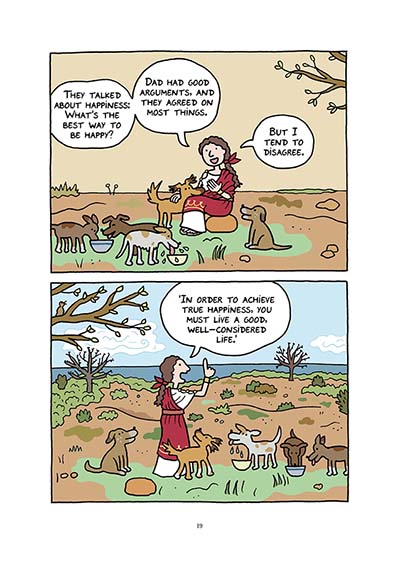
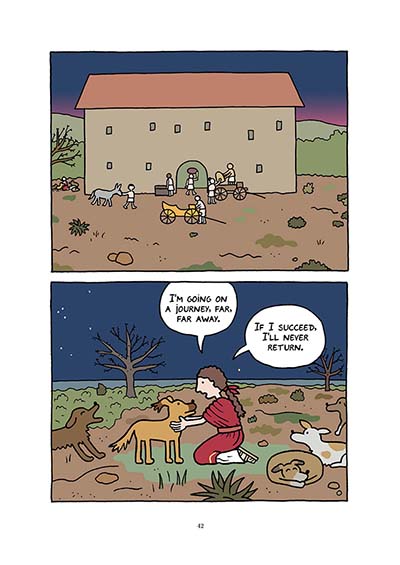
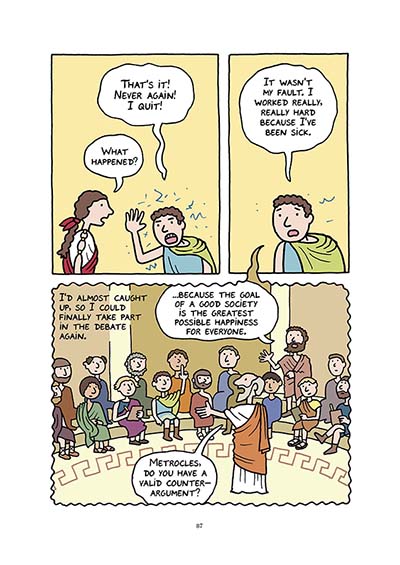
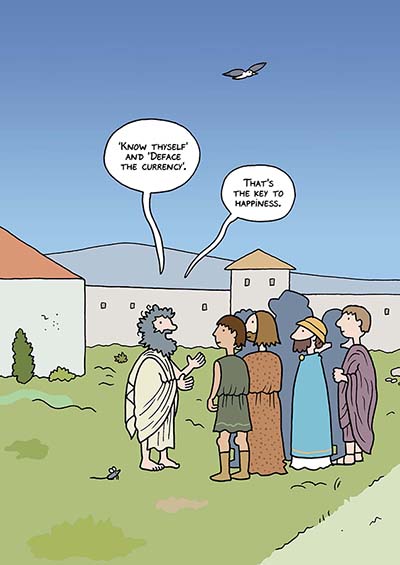

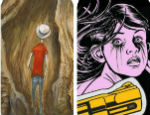
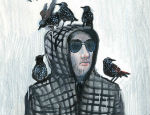

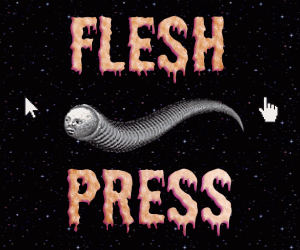

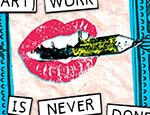

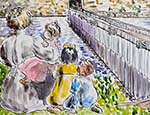
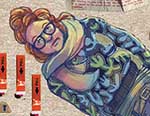
Read the Dutch version a year ago, such a great book! Also a great companion to the graphic novelization of Josteim Gaarder’s Sophie’s world (although I don’t know if these have been translated in English)